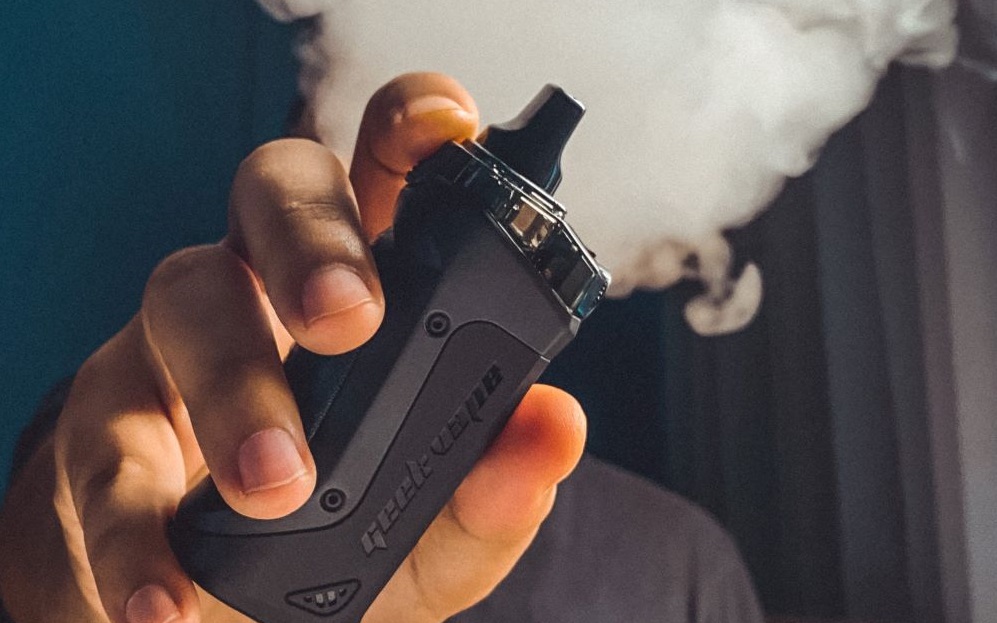To protect its youth, Britain outlaws disposable vape products.
Disposable vapes are facing a ban in Britain as part of a government initiative to address the growing concern of youth vaping and to safeguard children’s health. Prime Minister Rishi Sunak is expected to announce this ban, which is anticipated to be enforced by the end of 2024 or early 2025, during a school visit.
The decision comes in response to alarming data revealing a significant increase in youth vaping over the past three years. According to the government, the number of children using vapes has tripled, with approximately 9% of 11 to 15-year-olds now engaging in vaping. Notably, the rise in disposable vapes usage among 11 to 17-year-olds has surged nearly ninefold in the past two years, underscoring the urgency of regulatory intervention.
Vaping, the act of inhaling and exhaling aerosol produced by e-cigarettes or similar devices, gained popularity as an alternative to traditional tobacco smoking. Marketed as a safer option, vaping devices were initially perceived as a means to help adult smokers quit tobacco use.
However, concerns quickly emerged as vaping products began to appeal to younger demographics, including children and adolescents. Clever marketing strategies, enticing flavors, and sleek designs contributed to the increasing uptake of vaping among youth, raising alarms among health authorities and policymakers.

In recent years, the prevalence of youth vaping has skyrocketed, with a significant surge in the number of children and teenagers experimenting with vaping devices. Data from various studies and surveys have highlighted a concerning trend, indicating a sharp increase in vaping rates among adolescents across different age groups.
Disposable vapes, in particular, have emerged as a significant driver of youth vaping, thanks to their accessibility, affordability, and discreet design. These single-use devices, often available in enticing flavors, have become increasingly popular among adolescents, contributing to the overall rise in youth vaping rates.
The exponential growth in youth vaping rates, coupled with mounting evidence of the adverse health effects associated with vaping, has prompted governments and health authorities to take swift action. Regulatory interventions, such as banning disposable vapes and implementing stricter regulations on vape sales and marketing, are deemed necessary to address the public health crisis posed by youth vaping.
In addition to banning disposable vapes, the government plans to introduce stringent measures to restrict the marketing of vape flavors aimed at children and to enforce plain packaging regulations. Furthermore, retailers found selling vapes illegally to children will face fines of up to £100 in England and Wales.
Health and environmental groups have praised the initiative, emphasizing its focus on prioritizing children’s health and well-being. However, some critics argue that disposable vapes serve as a useful tool for individuals seeking to quit smoking cigarettes. Despite such objections, the government remains steadfast in its commitment to protecting children from the harmful effects of vaping.
Legislation to ban disposable vapes is also expected to address significant environmental concerns, as approximately five million disposable vapes are discarded weekly, contributing to the growing volume of non-recyclable waste. By banning disposable vapes, the government aims to not only safeguard children’s health but also reduce environmental pollution and promote recycling efforts.
Furthermore, the ban on disposable vapes underscores the government’s broader strategy to create a smoke-free generation by preventing children from accessing tobacco products. A comprehensive approach, including increased funding for enforcement agencies and enhanced regulation of tobacco and vape sales, is integral to achieving this ambitious goal.
While the ban on disposable vapes represents a critical step towards curbing youth vaping, strict enforcement and ongoing monitoring will be essential to its effectiveness. Additionally, efforts to address the illicit trade in tobacco and vapes must be prioritized to prevent illegal products from infiltrating the market.
The government’s decision to ban disposable vapes reflects its commitment to protecting children’s health and promoting environmental sustainability. By implementing robust regulatory measures and investing in enforcement strategies, the government aims to create a safer and healthier future for generations to come.
Sources:
Disposable vapes to be banned in Britain in bid to protect children’s health
An updated overview of e-cigarette impact on human health
Quick Facts on the Risks of E-cigarettes for Kids, Teens, and Young Adults


Join the conversation!